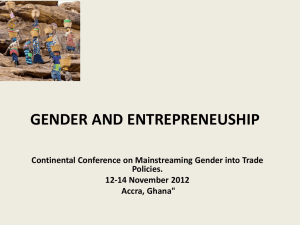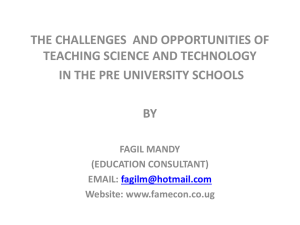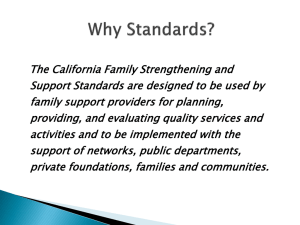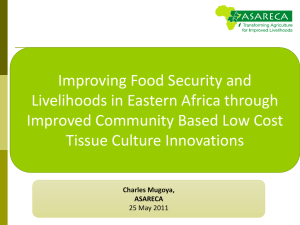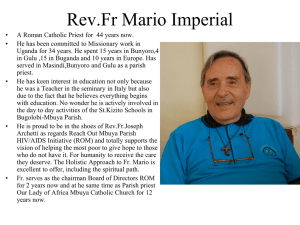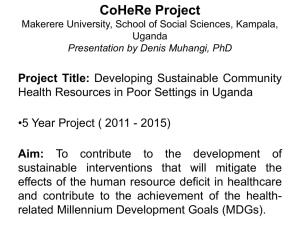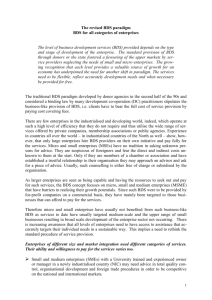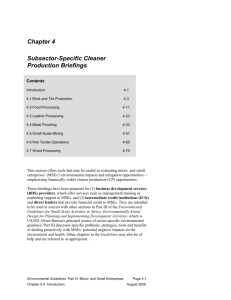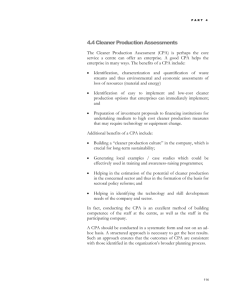UNIDO Integrated Programme
advertisement
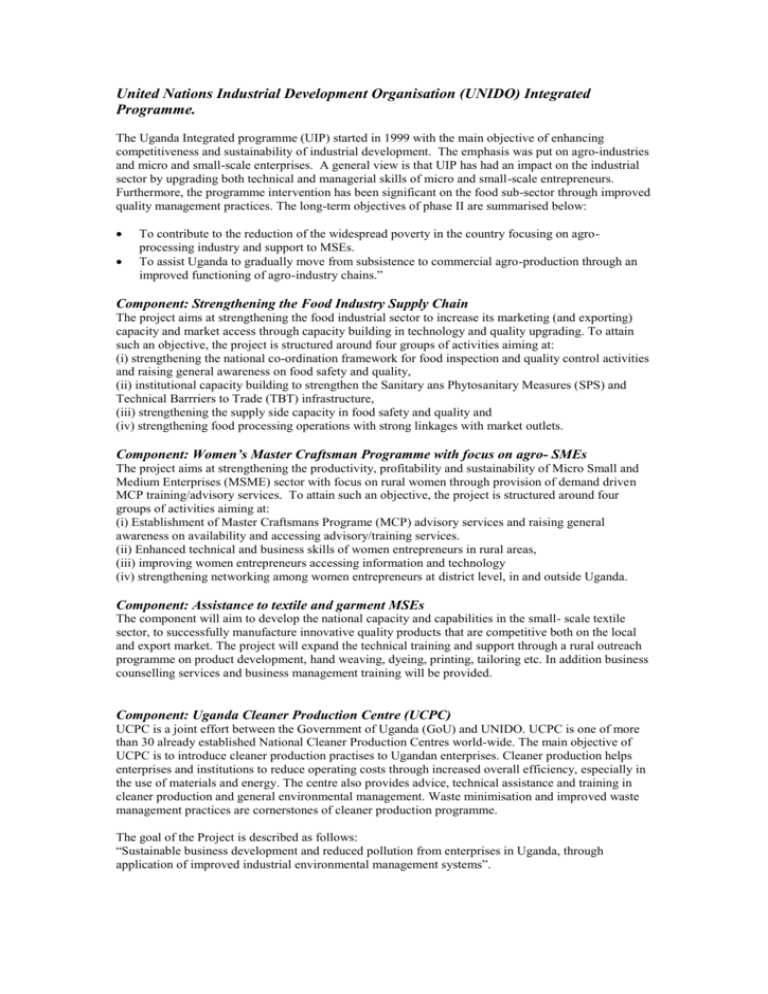
United Nations Industrial Development Organisation (UNIDO) Integrated Programme. The Uganda Integrated programme (UIP) started in 1999 with the main objective of enhancing competitiveness and sustainability of industrial development. The emphasis was put on agro-industries and micro and small-scale enterprises. A general view is that UIP has had an impact on the industrial sector by upgrading both technical and managerial skills of micro and small-scale entrepreneurs. Furthermore, the programme intervention has been significant on the food sub-sector through improved quality management practices. The long-term objectives of phase II are summarised below: To contribute to the reduction of the widespread poverty in the country focusing on agroprocessing industry and support to MSEs. To assist Uganda to gradually move from subsistence to commercial agro-production through an improved functioning of agro-industry chains.” Component: Strengthening the Food Industry Supply Chain The project aims at strengthening the food industrial sector to increase its marketing (and exporting) capacity and market access through capacity building in technology and quality upgrading. To attain such an objective, the project is structured around four groups of activities aiming at: (i) strengthening the national co-ordination framework for food inspection and quality control activities and raising general awareness on food safety and quality, (ii) institutional capacity building to strengthen the Sanitary ans Phytosanitary Measures (SPS) and Technical Barrriers to Trade (TBT) infrastructure, (iii) strengthening the supply side capacity in food safety and quality and (iv) strengthening food processing operations with strong linkages with market outlets. Component: Women’s Master Craftsman Programme with focus on agro- SMEs The project aims at strengthening the productivity, profitability and sustainability of Micro Small and Medium Enterprises (MSME) sector with focus on rural women through provision of demand driven MCP training/advisory services. To attain such an objective, the project is structured around four groups of activities aiming at: (i) Establishment of Master Craftsmans Programe (MCP) advisory services and raising general awareness on availability and accessing advisory/training services. (ii) Enhanced technical and business skills of women entrepreneurs in rural areas, (iii) improving women entrepreneurs accessing information and technology (iv) strengthening networking among women entrepreneurs at district level, in and outside Uganda. Component: Assistance to textile and garment MSEs The component will aim to develop the national capacity and capabilities in the small- scale textile sector, to successfully manufacture innovative quality products that are competitive both on the local and export market. The project will expand the technical training and support through a rural outreach programme on product development, hand weaving, dyeing, printing, tailoring etc. In addition business counselling services and business management training will be provided. Component: Uganda Cleaner Production Centre (UCPC) UCPC is a joint effort between the Government of Uganda (GoU) and UNIDO. UCPC is one of more than 30 already established National Cleaner Production Centres world-wide. The main objective of UCPC is to introduce cleaner production practises to Ugandan enterprises. Cleaner production helps enterprises and institutions to reduce operating costs through increased overall efficiency, especially in the use of materials and energy. The centre also provides advice, technical assistance and training in cleaner production and general environmental management. Waste minimisation and improved waste management practices are cornerstones of cleaner production programme. The goal of the Project is described as follows: “Sustainable business development and reduced pollution from enterprises in Uganda, through application of improved industrial environmental management systems”.
